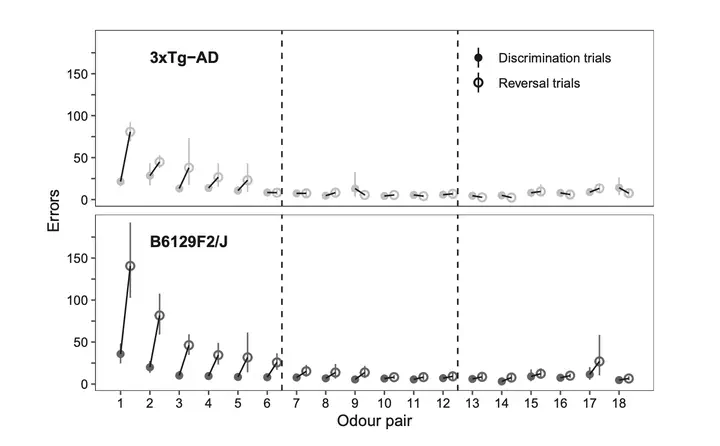
Abstract
Male and female 3xTg-AD mice between 5 and 24 mo of age and their B6129F2/J wild-type controls were tested on a series of 18 olfactory discrimination and reversal tasks in an operant olfactometer. All mice learned the odor discriminations and reversals to a criterion of 85% correct, but the 3xTg-AD mice made fewer errors than the B6129F2/J mice in the odor discriminations and in the first six reversal learning tasks. Many mice showed evidence of near errorless learning, and on the reversal tasks the 3xTg-AD mice showed more instances of near errorless learning than the B6129F2/J mice. There was no evidence of an age effect on odor discrimination, but there was a decrease in errorless reversal learning in aged B6129F2/J mice. In long-term memory tests, there was an increase in the number of errors made but no genotype difference. The high level of performance indicates that the mice were able to develop a “learning to learn” strategy. The finding that the 3xTg-AD mice outperformed their littermate controls provides an example of paradoxical functional facilitation in these mice.
Open access pdf.